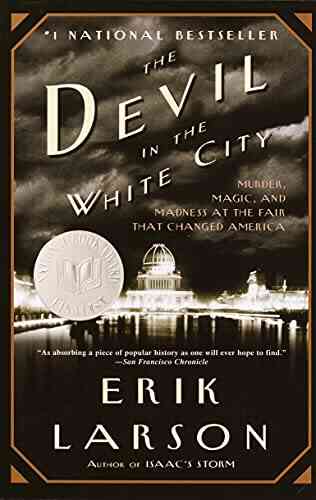When it comes to the most remarkable figures in medieval military history, one name often stands out: Sir John Hawkwood. Renowned for his strategic brilliance, Hawkwood played a crucial role in the famous Battle of Poitiers. This pivotal event, fought in 1356, showcased Hawkwood's exceptional military tactics and forever etched his name in history as a legendary commander. In this article, we will delve into the details of the Battle of Poitiers, examining Hawkwood's genius, the major players, and the resulting impact on the Hundred Years' War.
The Historical Context: The Hundred Years' War
In order to understand the significance of the Battle of Poitiers, it is vital to grasp the historical context in which it unfolded. The Hundred Years' War, a long-standing conflict between England and France, provided the backdrop for this monumental clash. At the time, King Edward III of England sought to claim the French crown, which eventually led to a series of battles that would shape the fate of both nations. It is within this context that Sir John Hawkwood emerged as a central figure.
Sir John Hawkwood: A Mercenary Extraordinaire
Sir John Hawkwood, an English mercenary, was a force to be reckoned with. Known for his strategic brilliance and unyielding leadership, he played a key role in several military campaigns throughout his storied career. Born in Essex, England, Hawkwood initially served as an archer in the army of Edward III. Yet, it was his time as a captain in Italy that truly established his reputation as a master tactician. With a band of renowned mercenaries under his command, Hawkwood became a formidable figure in the complex politics of medieval Italian city-states.
4.5 out of 5
| Language | : | English |
| File size | : | 3409 KB |
| Text-to-Speech | : | Enabled |
| Enhanced typesetting | : | Enabled |
| X-Ray | : | Enabled |
| Word Wise | : | Enabled |
| Print length | : | 259 pages |
| Lending | : | Enabled |
| Screen Reader | : | Supported |
As the conflict between England and France intensified, Hawkwood found himself summoned back to his homeland. Recognizing his exceptional military acumen, King Edward III sent him to reinforce the English forces in their ongoing struggle against the French crown. It is here that Hawkwood's participation in the Battle of Poitiers would prove to be a turning point in the Hundred Years' War.
The Battle of Poitiers: Knights versus Longbows
The Battle of Poitiers took place on September 19, 1356, near the town of Poitiers, France. The French army, led by King John II, significantly outnumbered the English forces. However, what the English lacked in numbers, they compensated for with their ingenious strategy and deployment of longbowmen.
As the French knights charged towards the English lines, Hawkwood ordered his archers to unleash a devastating rain of arrows. This deadly hail of projectiles caused chaos among the French ranks, slowing their advance and sowing confusion in their tightly-organized formations. The English forces, comprising longbowmen, knights, and infantry, managed to hold their ground against tremendous odds.
The Hawkwood Effect: A Decisive Victory
Hawkwood's calculated tactics brought about a decisive victory for the English at the Battle of Poitiers. Despite facing an army several times their size, Hawkwood's leadership, combined with the deadly accuracy of his longbowmen, proved the difference. The French suffered heavy losses, including the capture of their king, John II, who fell into English custody. The Battle of Poitiers revitalized English confidence in their ability to win against the odds and marked a significant setback for the French.
The Legacy of the Battle of Poitiers
The Battle of Poitiers left an indelible mark on European history. Besides securing Hawkwood's status as a military genius, it also showcased the true potential of longbowmen as a decisive force in medieval warfare. The victory at Poitiers served as a source of inspiration for future generations of English soldiers and laid the foundation for England's eventual triumph in the Hundred Years' War.
Sir John Hawkwood continued to serve as a prominent military figure and commander long after the Battle of Poitiers. His strategic brilliance and unwavering dedication to the art of warfare earned him a place in the annals of military history. To this day, his name is synonymous with victorious battles and the triumph of cunning strategy.
The Battle of Poitiers stands as a testament to the power of strategic genius and the impact of a skilled commander on the outcome of a conflict. Sir John Hawkwood's leadership and tactical brilliance played a crucial role in this historic battle, forever etching his name in the annals of military history. The events of Poitiers not only served as a turning point in the Hundred Years' War but also solidified the reputation of Hawkwood as one of the greatest military minds of his time.









































































